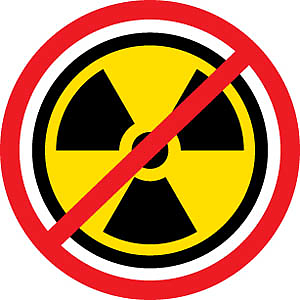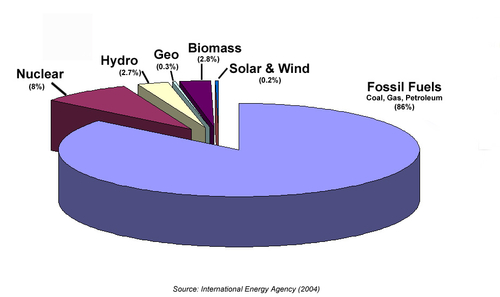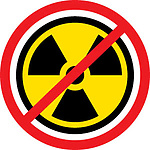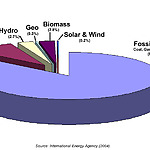The nuclear energy is the key of an actual debate, “the future of the energy”, a debate that will have a high influence in the future of humanity. During the next 10 years we will reach the peak oil and during the next 50 we will reach the oil depletion, which means that humanity will need to find an alternative way (or more than one) to generate the excessive amount of energy that consumes. On one hand, we have the renewable energies, which would be the perfect substitute because they are infinite and virtually harmless against the environment. Nevertheless, as we can see on the image above, it’s impossible to replace all the fossil energy production with renewable energies, so using them as an alternative would imply to have some kind of extra supply or to change our society model in order to reduce drastically the energy consumption. On the other hand, we have the nuclear energy, which could assume the huge amount of energy that nowadays is produced through fossil fuels. That would be great if not for the 2 main problems of nuclear energy: the waste that produces, which remains radioactive for thousands of years, and that, as fossil fuels, it isn’t infinite.
Apparently the only feasible alternative to fossil fuels is the nuclear energy, if we consider ourselves able to deal with the inconvenients. Nowadays nuclear energy can be generated by two processes: The open fuel cycle, in which the waste remains radioactive for 200000 years, and the closed fuel cycle, which reduces the product’s toxicity and volume substantially but creates additional short-term risks. Obviously if we think on an egoist way we will say that the first one is the best, but is that responsible and sustainable? On an ethical approach, it’s not fair to leave millions of waste tons to the next generations because we are the ones that are getting the benefits but they will be the ones that have to deal with the consequences. On that sustainable approach we should assume all the risk, or at least the maximum possible amount, in order to reduce the risk for the next generations. Then, once discarded the open fuel cycle, we can consider the closed fuel cycle but even with the reduction the waste still being unacceptable.
Some people argue that the future technology will be able to deal with that waste and to purify it. That’s a very optimistic perspective so, in my humble opinion, we should apply the precautionary principle. In addition, nowadays we think that our nuclear cemeteries are sure but we can be completely sure of this? Science is the key for human development and every day we know more about nature, nevertheless there might be some risk in our cemeteries, even if nowadays we are completely sure about their safety. As an example the reader should remember that, in the early 20th century, Marie Curie was wearing a radioactive stone on her necklace thinking that it was inoffensive.
Ultimately, we can determine that nuclear energy is not a solution to “the future of the energy debate”; it’s only a way to win some decades at a high cost. Nuclear energy is also finite and it will only replace the fossil fuels for a couple of generations, then the next (next) generations will have to deal with a world without energy and full of radioactive waste. Definitely, the energy problem in our society has to be solved through a definitive solution that will probably imply a drastic change in our consumption habits and some relation with renewable energies but knowing that they will never supply enough energy for the whole mankind.



